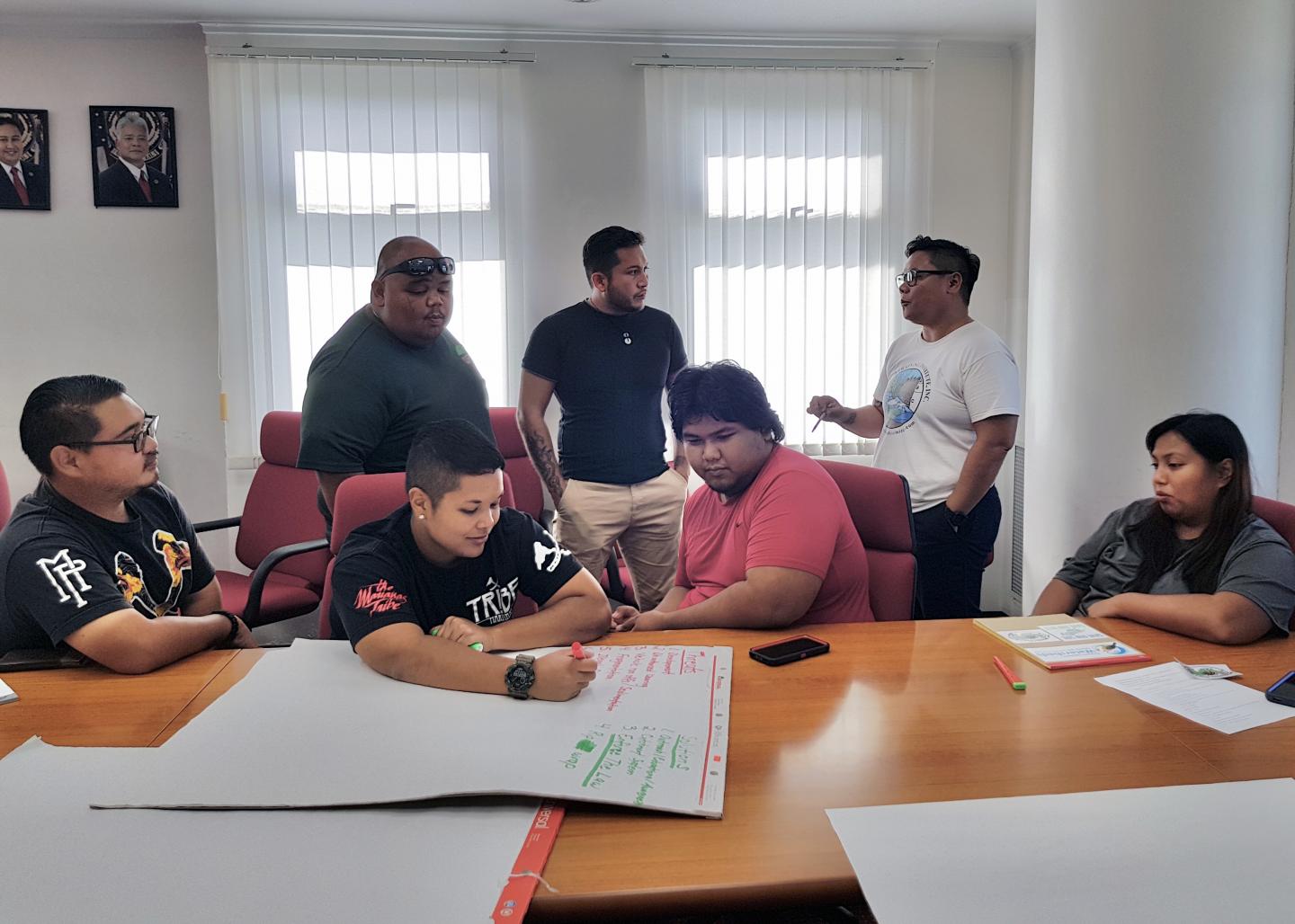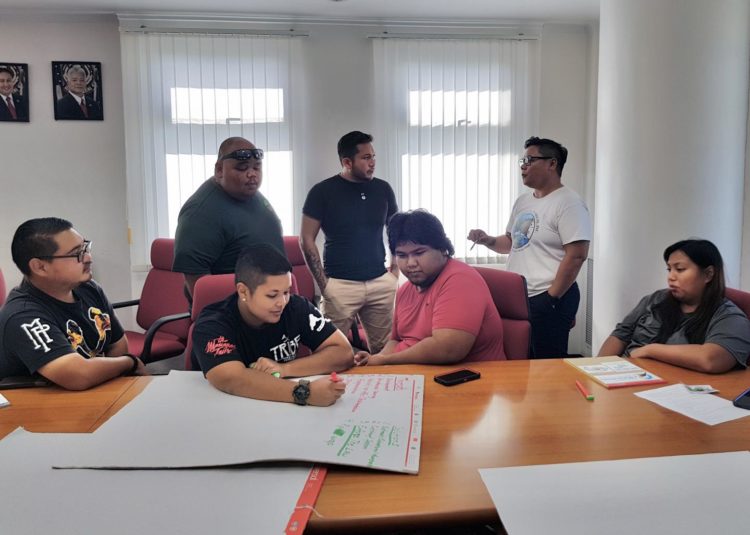
Credit: Photo courtesy of University of Guam
The University of Guam and natural resource officials in Saipan and Rota exchanged expertise and challenges regarding watershed management last week during a workshop made possible from a National Science Foundation grant. The discussion helped to identify gaps in available resources and encourage more collaboration in management and restoration efforts in the Marianas.
A watershed is a catchment area between the divides of mountains where water collects, flows through the land and into rivers and streams, and eventually discharges into a body of water. Managing watersheds is important in preventing erosion and pollution from smothering coral reefs and harming marine wildlife.
Else Demeulenaere, associate director of the UOG Center for Island Sustainability and co-principal investigator of the funding grant — the NSF Inclusion Across the Nation of Communities of Learners of Underrepresented Discoverers in Engineering and Science, or NSF INCLUDES, program – led the watershed workshops on Dec. 12 in Saipan and Dec. 19 in Rota. She was accompanied by UOG graduate student Frank Roberto and undergraduate student Laura Gombar, both NSF INCLUDES fellows.
The UOG team shared its ongoing watersheds projects and programs, including the Guam Restoration of Watersheds (GROW) Initiative, educational outreach efforts, and STEM internships for high school and college students.
“Having the opportunity to travel to our sister islands and share our resources with their communities is an enriching experience,” Demeulenaere said. “We were also very pleased to learn from our colleagues in Saipan and Rota. Their knowledge is helpful in filling the gaps in our respective workspaces, in terms of watershed management efforts, and it enhances the social and cultural ties between the Mariana Islands.”
The CNMI Department of Land and Natural Resources and Division of Coastal Resources Management hosted the workshops and also provided experts to speak on watershed challenges unique to their islands. Attendees included professionals from the forestry, conservation, fish and wildlife, tourism, and education sectors.
“As neighbors in the Pacific, it is so important that we cooperate our efforts towards sustainable living and conserving our unique biodiversity,” said DCRM watershed coordinator Zachary Williams.
The trips to Saipan and Rota were funded by the NSF INCLUDES program, which focuses on diversity, inclusion, and broadening participation in STEM at scale. The program is expected to ramp up in 2020, with UOG recently being awarded a $2.3 million grant to further expand STEM capacity building in island communities.
###
Media Contact
Jonas Macapinlac
[email protected]
671-787-1010
Original Source
https:/





